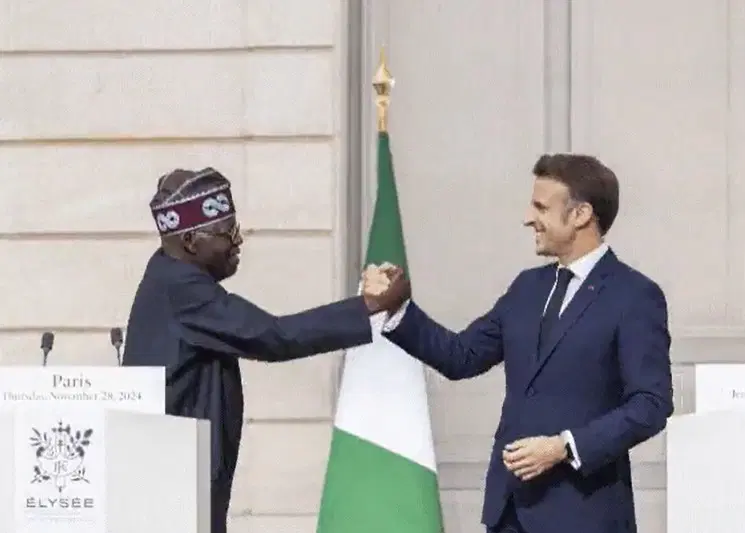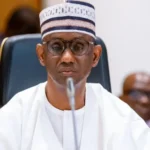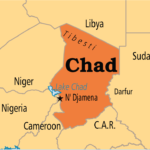This week, President Bola Ahmed Tinubu is on a State visit to France just after his return from Brazil. This is the first State visit to France by a Nigerian president since 2000. My good friend, Prof. Marc-Antoine Pérouse de Montclos, in an article on the visit in Jeune Afrique magazine, argues that the stake for France is to improve its relationship with Africa’s most populous country after the catastrophic disaster that followed the failure of Operation Barkhane and its being chased out of the Sahel. He doubts that much can be gained by the visit given the troubles of governance in Nigeria and the difficulties France finds itself in.
The stake for Nigeria is to seek French support for economic revival. According to a statement issued on Tuesday by Special Adviser to the President on Information and Strategy, Bayo Onanuga, during the visit, President Tinubu and his wife, Senator Oluremi Tinubu, will participate in a series of high-profile events and engagements covering a wide field – including agriculture, security, education, health, youth engagement, innovation, and energy transition.
A significant portion of the talks will centre on creating opportunities for skill development, particularly for Nigerian youth, in automation, entrepreneurship, and leadership, he added. Both presidents will attend a session of the France-Nigeria Business Council, a platform for private-sector collaboration in economic development.
After their meeting yesterday, President Tinubu declared that: “Nigeria is open for business,” adding that Nigeria should be taken “for a serious country and partner”. This was the same message he articulated in Brazil the previous week. The problem is whether these countries will listen to what the president is saying or look instead at what is happening in the country. On that score, the picture is certainly not rosy as the economic and security crises in the country deepen.
Be that as it may, this may be the moment to make the argument following France’s pivot towards English-speaking Africa as their position in Francophone Africa weakens. Macron has visited Nigeria in 2018, Ethiopia in 2019 and South Africa in 2021, seeking new friends.
Nigeria was France’s number-one trading partner in sub-Saharan Africa in 2023, followed by South Africa. France still holds significant sway in Africa despite competition from China, India and Turkey. President Tinubu’s expectation that France will help Nigeria develop its “vibrant youth population, well-educated, and ready to be trained”, with promises from Macron to invest in the cultural sector might be too optimistic.
France is on a charm offensive and is making the case that there is a new France that “wants a partnership of equals with Africa.” As I argued in my column of October 24 this year, the history of French neo-colonialism in Africa is so deep that it is difficult to turn the page. The French President, Emmanuel Macron, is a very interesting player in the political arena and often sets out to do the opposite of what rational actors would do to surprise, and hopefully, defeat his interlocutors. This is seen clearly in his African policy.
Over the past few years, a very successful campaign attacking French neo-colonialism has been on-going and led to coup d’état that produced the result of throwing out France and their military bases in Mali, Niger and Burkina Faso. This anti-French movement continues to grow in the other Francophone African countries and more hits against France are likely to occur in the coming months.
The charges against France are strong. The deepest is the retention of large detachments of French soldiers in its former colonies with sufficient capacity to remove from power any president that even suggests a possibility of reducing his country’s subservience to France. With presidents in their pockets, France then imposes control over currency for its neo-colonies which it runs, it keeps their foreign reserves in the French treasury and buys their natural resources way below their market value. That was how France as a country became dependent of excessive exploitation of their neo-colonies.
Most of the coup d’états that have occurred in Francophone Africa have been cases of France punishing political leaderships that begin to ask questions about this extreme exploitation and control. Before the recent anti-French revolt, the last time France has been frontally challenged by a neo-colony was Sekou Touré in Guinea in 1958 and Thomas Sankara in Burkina Faso in 1983. The revolt by Mali, Burkina Faso and Niger is, therefore, a shattering blow to the French system. One would think the French President, Macron, would soft pedal on French assertiveness at such a delicate time. He did exactly the opposite.
What the world saw was a bold statement from Macron announcing that in this system, all powers belong to the French despot resident in Paris and the subordinates must bend to the will of France. He therefore directed that the Francophonie Summit of 4th and 5th October 2024, which had been rotating around various capitals over the last 33 years should be held in Paris this year at the “Cité Internationale de la Langue Française”, where in 1539 the Ordinance of Villers-Cotterêts was signed by King Francois 1st. The ordinance had two elements. The first was the ban of the use of Latin as the language for laws and official correspondence as was the case throughout Europe at the time. In other words, he was asserting the superiority of French nationalism over internationalism. The second element of the law was the ban on teaching and speaking local French languages such as Occitan.
His other message is exemplified by his persecution of the Pan-Africanist nationalist campaigner Kemi Seba who has devoted years to bringing down French neo-colonialism in West Africa. His massive social media following has been instrumental in exposing French neo-colonialism and mobilising nationalist forces against them. The French State threatened him but he continued his advocacy. The French government then withdrew his nationality at a time when his own country of origin, Benin Republic, was seeking to arrest him. In a show of defiance, Kemi Seba burnt his French passport on live television and continued exposing Macron’s arrogance. By openly persecuting voices against French neo-colonialism, President Macron is strengthening the said voices against neo-colonialism.
There might, however, be a reset in terms of France-Nigeria relations. Both countries were opposed to the military coups that occurred in the Sahel these last few years. I have earlier published a joint memorandum with colleagues on reports of a discussion between both governments about setting up military bases which both countries have denied. The question posed is whether this visit is also about joint interest on the Sahel question. Let us not forget that both countries are worried about the growing popularity of the coup phenomenon in the streets of West African cities.
The three populist regimes in Mali, Burkina Faso and Niger have been spreading the gospel that the time has come for the entire region to liberate itself from the shackles of French neo-colonialism. The terror in the heads of Macron and many other West African presidents is what if the dominos begin to fall with more coups in Cote d’Ivoire, Togo, Benin and so on that join the bandwagon of chasing out France. That would be the definition of a tragic end to the Macron presidency and would completely destabilise not just the country’s geo-politics but also its economy and prestige.

 Join Daily Trust WhatsApp Community For Quick Access To News and Happenings Around You.
Join Daily Trust WhatsApp Community For Quick Access To News and Happenings Around You.


